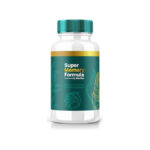As seasonal changes take their toll on health, the immune system becomes the body’s first line of defense. Many turn to pharmaceutical solutions, but nature offers powerful alternatives. Strengthening the immune system naturally is not only possible but backed by science. This article explores natural strategies to support immune function, enhance resistance to infections, and promote overall well-being.

Understanding the Immune System
The immune system is a complex network of cells, tissues, and organs that collaborate to protect the body. It identifies harmful invaders, such as viruses, bacteria, and toxins, and effectively eliminates them. Consequently, this defense mechanism plays a crucial role in maintaining overall health and preventing infections. Without it, the body would be vulnerable to various diseases.
Key Components of the Immune System
- White Blood Cells (Leukocytes): These are the primary defense agents, constantly patrolling the bloodstream and tissues.
- Lymphatic System: It transports lymph, a fluid containing infection-fighting white blood cells, throughout the body.
- Thymus and Bone Marrow: Both produce and train immune cells.
- Spleen: It filters blood and helps recognize foreign substances.
To function effectively, the immune system requires balance and harmony. Various lifestyle and dietary factors play a crucial role in this.
Natural Ways to Boost Immunity
Moreover, enhancing immunity naturally requires a holistic approach. A balanced diet rich in vitamins, regular exercise, quality sleep, and effective stress management all work together to boost immune function. Prioritizing these healthy lifestyle choices strengthens your body’s defense system, helping you stay resilient against illnesses and infections.
Nutritional Strategies for Immune Support
Moreover, diet plays a crucial role in strengthening immunity. Essential nutrients act as building blocks for immune cells and signaling molecules, supporting the body’s natural defense system. A well-balanced diet rich in vitamins, minerals, and antioxidants can significantly enhance immune function and resilience, helping the body fight off infections and maintain optimal health.
Superfoods That Enhance Immune Function
Eating the right foods provides essential vitamins, minerals, and antioxidants needed for immunity.
Key Immune-Boosting Nutrients:
- Packed with natural ingredients known for their anti-inflammatory and neuroprotective properties, Serenity Prime has quickly garnered attention in the health and wellness community. As a result of its unique formulation, this supplement is considered a promising solution for supporting both ear and brain health.
- In this comprehensive Serenity Prime review, we’ll explore everything you need to know — from how it works and its key ingredients to core benefits, real user feedback, and purchasing options.
Hydration and Immunity
Moreover, water plays a vital role in every cellular function, including immune response. Staying well-hydrated supports the body by flushing out harmful toxins and ensuring efficient nutrient transport. This, in turn, strengthens the immune system and enhances overall health. Therefore, maintaining proper hydration is a simple yet powerful way to support immune function and promote well-being.
Lifestyle Habits That Strengthen Immunity
Daily habits have a profound impact on immune performance. Small changes can bring lasting benefits.
Sleep and Immune System Health
Sleep is critical for immune regulation. During rest, the body produces cytokines—proteins that help target infections.
- Adults should aim for 7 to 9 hours of quality sleep.
- Lack of sleep has been linked to increased susceptibility to colds and flu.
Stress Management for a Stronger Immune Response
Chronic stress triggers the release of cortisol, which suppresses immune function over time. Adopting stress-reducing techniques can significantly enhance resilience.
Try these methods to lower stress:
- Meditation: Regular mindfulness practice, in particular, improves emotional balance and enhances mental clarity.
- Breathing Exercises: Additionally, deep breathing calms the nervous system, helping to reduce stress-related immune suppression.
- Time in Nature: Moreover, exposure to green spaces significantly lowers cortisol levels and naturally boosts mood and overall well-being.
- Social Connection: Likewise, meaningful relationships promote mental health, which in turn indirectly supports immune function and resilience.
Physical Activity and Its Role in Immunity
Exercise is a double-edged sword. While intense training may suppress immunity temporarily, moderate activity boosts immune surveillance.
Best Forms of Exercise for Immune Support
Engaging in regular, moderate-intensity activities enhances circulation and immune cell distribution.
Effective options include:
- Brisk walking
- Jogging
- Cycling
- Swimming
- Yoga
These forms of movement stimulate lymph flow and improve stress regulation. Transitioning to a more active lifestyle gradually yields sustainable results.

Herbal and Natural Supplements
Several herbs and botanicals possess immune-enhancing properties. Although not a substitute for healthy habits, they can complement your wellness plan.
Science-Backed Herbs for Immune Support
Many herbal remedies have been studied for their immune-modulating effects.
- Echinacea: Traditionally used to reduce the duration of colds, this powerful herb is especially effective because studies show it enhances macrophage activity and interferon production, both key to a robust immune response.
- Moreover, Elderberry is rich in flavonoids and antioxidants. In particular, elderberry extract has been shown to shorten the severity and duration of influenza infections, making it a go-to remedy during flu season.
- Similarly, Astragalus Root is a staple in Traditional Chinese Medicine. Notably, it strengthens resistance to infection by boosting white blood cell counts, which are essential for fighting off pathogens.
- Finally, Garlic contains allicin, a compound with potent antimicrobial and antiviral properties. Consistently, regular consumption is linked to fewer colds and improved immune resilience.
Medicinal Mushrooms
- Reishi: Known for its immune-balancing properties.
- Maitake and Shiitake: Support the production of natural killer cells and T-cells.
The Gut-Immune Connection
The gut is home to trillions of microorganisms. These microbes play a pivotal role in regulating immunity.
How Gut Health Influences Immunity
A balanced microbiome supports immune tolerance and protects against pathogens.
- To begin with, probiotics promote beneficial bacteria that enhance gut lining integrity.
- In addition, prebiotics (found in onions, garlic, and bananas) feed these good bacteria, further supporting digestive health.
- Moreover, fiber-rich diets reduce inflammation and support gut flora diversity, contributing to overall gut balance.
Disruptions in gut health, such as those caused by antibiotics or processed foods, can weaken immune defenses.
Environmental and Seasonal Factors
Immune system performance can fluctuate with environmental changes. During colder months, people spend more time indoors, increasing exposure to pathogens.
Seasonal Influences on Immune Function
- Lower sunlight exposure reduces vitamin D synthesis.
- Dry air affects mucous membrane hydration, compromising respiratory immunity.
- Temperature changes challenge the body’s adaptability.
Adapting lifestyle choices to these changes can mitigate the risks.
Integrative Approaches for Whole-Body Wellness
True immune strength arises from balance. Combining nutrition, exercise, stress management, and natural therapies provides comprehensive support.
Small Daily Habits That Build Immunity
- To begin with, start the day with lemon water to boost hydration and vitamin C.
- Next, take a short walk in the morning light to improve mood and regulate circadian rhythms.
- Additionally, add turmeric and ginger to meals for their well-known anti-inflammatory effects.
- Lastly, practice gratitude or journaling to effectively reduce emotional stress and promote mental clarity.
These minor yet consistent actions promote a cumulative effect on immune health.
Practical Immune-Boosting Routine
Below is a simple daily routine that naturally supports immune resilience:
Morning
- Hydrate with warm lemon water
- Stretch or walk for 15–30 minutes
- Eat a probiotic-rich breakfast (e.g., yogurt with berries and flaxseed)
Afternoon
- Eat a nutrient-dense lunch with leafy greens and lean protein
- Take deep breathing breaks or do a short mindfulness session
- Enjoy a cup of green tea with echinacea
Evening
- Avoid screens 1 hour before bed
- Have a light, antioxidant-rich dinner (e.g., salmon with sweet potatoes and broccoli)
- Wind down with a calming herbal tea like chamomile
No doctor has ever healed anyone of anything in the history of the world. The human immune system heals and that’s the only thing that heals.
– Helen fisher
Conclusion: Nature’s Power to Defend and Restore
The immune system is dynamic and responsive to your daily choices. Therefore, by prioritizing natural foods, adequate rest, physical activity, and stress relief, you can build lasting immunity. Moreover, seasonal changes don’t have to lead to sickness—with consistent effort and the right habits, your body can stay resilient all year round.
Incorporating scientifically supported strategies is not just about avoiding illness. It’s about thriving. Begin with one or two lifestyle changes, then build from there. Over time, these small shifts create a robust foundation for health, vitality, and longevity.


